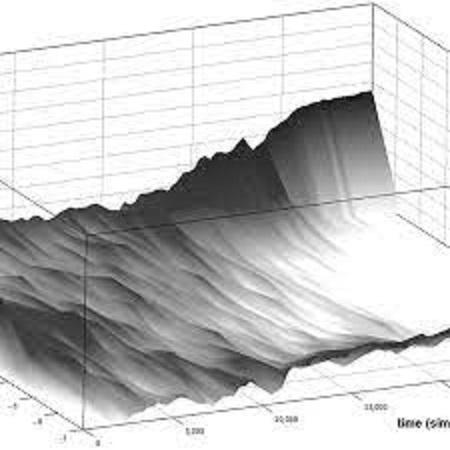Africa-Press – Mauritius. The MMM leader is said to be cooking up his political strategy for the next election after the last election is over, whether in government or in opposition.
It was with this in mind that he outlined the contours of the MMM’s future strategy in his end-of-year speech at a rally of party activists. The takeaways from his speech are two indications that will potentially reconfigure the political scene in the future.
First, he seems to have put aside any new possibility of an alliance with the MSM, calling it a “danger to democracy” which must be fought at all costs.
Second, he seems to want to favor active collaboration with other parliamentary opposition parties, the Labor Party in particular, in order to thwart the plans of the government of the day.
Scared by its defeat in the last election, the MMM has abandoned the idea of going it alone against all, and it intends to ally with another party in the future to improve its chances in the next elections – municipal or general.
Immediately after the installation of the newly elected Government from the ballot box, there were some hiccups within the parliamentary opposition regarding the appointment of the new Speaker of the National Assembly.
The MMM criticized the Leader of the Opposition for endorsing the incumbent’s choice by not opposing his appointment. This divergence did not bode well for relations between the two opposition parties, and there were fears of a dispersal of opposition forces to the advantage of the regime.
However, the MMM has since caught up and embarked on a process of seduction towards the Ptr so that the two parties tune their violins on the issues of the day and conclude a term agreement, against the backdrop the joint challenge in Court of the results of the ballot boxes in certain constituencies.
Long-term vision It is a significant gesture that the MMM and the PTr, both, speak about the absence of free and fair elections (lack of free and fair elections) during the last legislative ballot, without however wanting to prejudge the verdict of the Court.
This will decide whether the opposition is a good or bad loser. Either way, if the two parties find themselves in a mess today, they are partly responsible for their fate.
When they were in power together (PTr-MMM alliance of 1995) or with another ally in the past (MSM-MMM alliance of 1991-1993 and 2000-2005; Ptr-MSM alliance of 2010-2013), they did not did not see fit to carry out democratic reforms which would precisely guarantee free and fair elections.
Today they are victims of their own inaction, indecision and procrastination. Yet every time they participated in government, they had a majority to pass democratic reform laws.
However, believing that power was likely to last for a long time, they did not think beyond a five-year term and their lack of long-term vision has led us to the widespread poor governance that plagues the country. Thought leadership is judged by its ability to execute ideas that have national impact for generations, such as political independence.
Since 1982, no major democratic reform has been accomplished, with the exception of the amendment to the Constitution voted by the MMM-PSM government of the time in order to guarantee the holding of general and by-elections according to regulatory deadlines.
.
This constitutional amendment, which was undoubtedly a visionary act, spared the country from certain totalitarian temptations since the people have the opportunity to practice the alternation of power at regular intervals. But we shouldn’t sleep on our laurels.
Further reforms were needed to deepen political democracy, make the social market economy more equitable and make general governance more transparent, all of this in tune with the process of economic modernization in which the country has embarked.
Reforms needed The discrepancy between the grand narrative of economic modernity and the iniquity of the political system is too obvious. Three reforms in particular, had they been done without fear or favor, could have alleviated the inequities of the system and mitigated the damage for the losing parties.
First, a reform of the electoral system with a dose of proportionality would have allowed a better representation of parties in Parliament in line with their votes obtained, this according to a fair and reasonable formula without upsetting the results resulting from the ‘First Past The Post’ system.
.
But all the parties, when in power, systematically postponed this reform project, wrongly claiming to be the beneficiaries of the majority ballot How much time was wasted in expert studies, elite committees and consultations!
Second, the democratization of the airwaves – with the introduction of private television – would have ended the monopoly of the MBC, an unhealthy propaganda tool in favor of the powerful of the day, and would have enabled enlightening public debates on national issues.
The private radios introduced in 2000 have allowed a healthy competition with the public radios although some of them are under the orders of the government.
This beginning of reform of the audio-visual space did not follow immediately so much the various governments were jealous of their absolute control of the MBC.
Third, a reasonable law on the financing of political parties would have put them on an equal footing in terms of both fundraising and eligible election expenses.
It would have sounded the death knell for slush funds fueled by illicit donations and would have reduced corruption. It is never too late to make the necessary reforms as long as there is a consensus among the parties on the minimum acceptable.
For the opposition to be a credible alternative to the ruling parties, it is essential that it seeks common interests among its various components in order to find common ground. The MMM seems to want to get down to it.
If he succeeds in this process, we will have left to experience a new version of political bipolarization in Mauritius with, on the one hand, all the opposition parties and, on the other, the parties in power.
For More News And Analysis About Mauritius Follow Africa-Press







